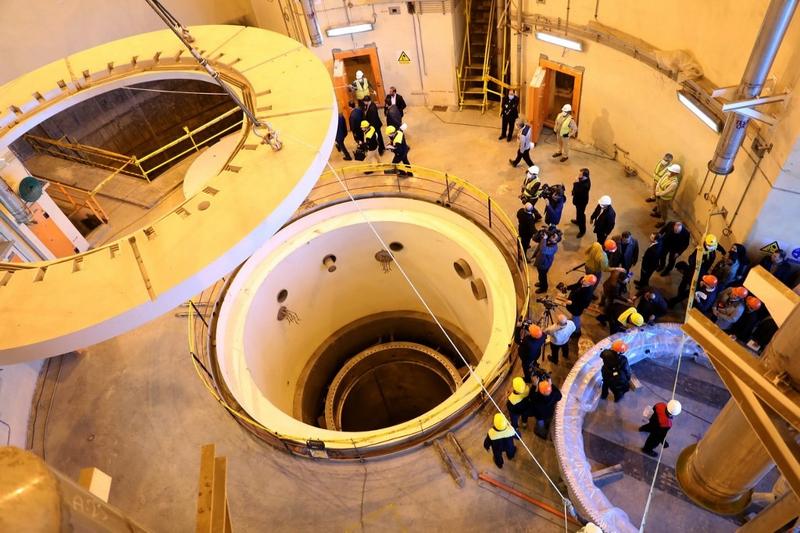 This handout picture released by Iran's Atomic Energy Organization on Dec 23, 2019 shows the nuclear water reactor of Arak in the south of capital Tehran during a visit by the head of the organisation Ali Akbar Salehi (not in frame). (HANDOUT PHOTO / ATOMIC ENERGY ORGANIZATION OF IRAN / AFP)
This handout picture released by Iran's Atomic Energy Organization on Dec 23, 2019 shows the nuclear water reactor of Arak in the south of capital Tehran during a visit by the head of the organisation Ali Akbar Salehi (not in frame). (HANDOUT PHOTO / ATOMIC ENERGY ORGANIZATION OF IRAN / AFP)
WASHINGTON - Iran has not taken further steps to violate its 2015 nuclear deal with world powers since it renounced last month all restraints imposed by the agreement, the head of the UN nuclear watchdog agency said on Wednesday.
“After the fifth step, there hasn’t been any follow-up,” said Raphael Grossi on his first official visit to Washington since becoming director general of the International Atomic Energy Agency in December. “Of course, they continue to enrich.”
After the fifth step, there hasn’t been any follow-up.
Raphael Grossi, Director-general, International Atomic Energy Agency
READ MORE: UN reports increasing violations of Iran nuclear deal
Tehran in July began stockpiling more low-enriched uranium than allowed by the nuclear deal in the first of five breaches that it has declared in response to US President Donald Trump’s 2018 decision to pull the United States out of the accord and re-impose harsh sanctions that have strangled Iran’s petroleum exports, battering its economy.
Iran have said it would reverse the violations, which have included enriching uranium to a higher level than set in the agreement and operating prohibited advanced centrifuges, the machines that purify uranium, if the sanctions were removed.
ALSO READ: Iran has not ruled out talks to end nuclear dispute, says official
The breaches were aimed at pressuring European powers to help Iran weather the impact of the US sanctions and perhaps also at pressuring the United States to ease sanctions and open talks with Iran.
After Iran last month announced it no longer would observe any of the deal’s restraints, Britain, France and Germany triggered the deal’s dispute mechanism, opening the door to a possible re-imposition of international sanctions. Russia and China also are parties to the deal.
Grossi said he discussed Iran’s nuclear program on Tuesday with Secretary of State Mike Pompeo but declined to elaborate. During a think tank appearance on Wednesday, Grossi said the IAEA continues to monitor the Iranian nuclear program.
The deal was designed to prevent Iran from developing nuclear weapons. The IAEA and the US intelligence community separately concluded that Tehran shuttered a nuclear weapons development effort in 2003. Iran denies it ever pursued a nuclear weapon.



